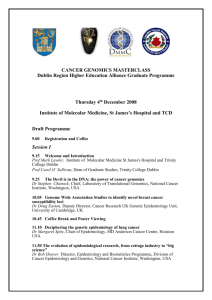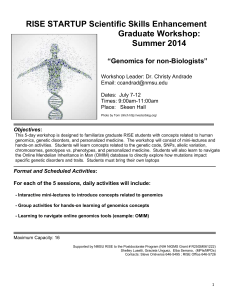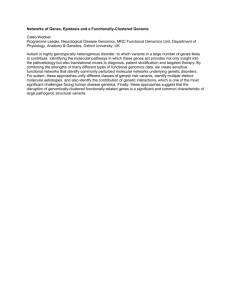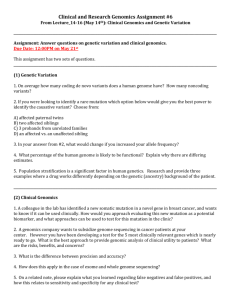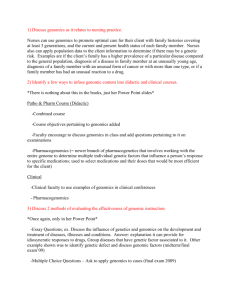GENOMICS in EPIDEMIOLOGY Symposium
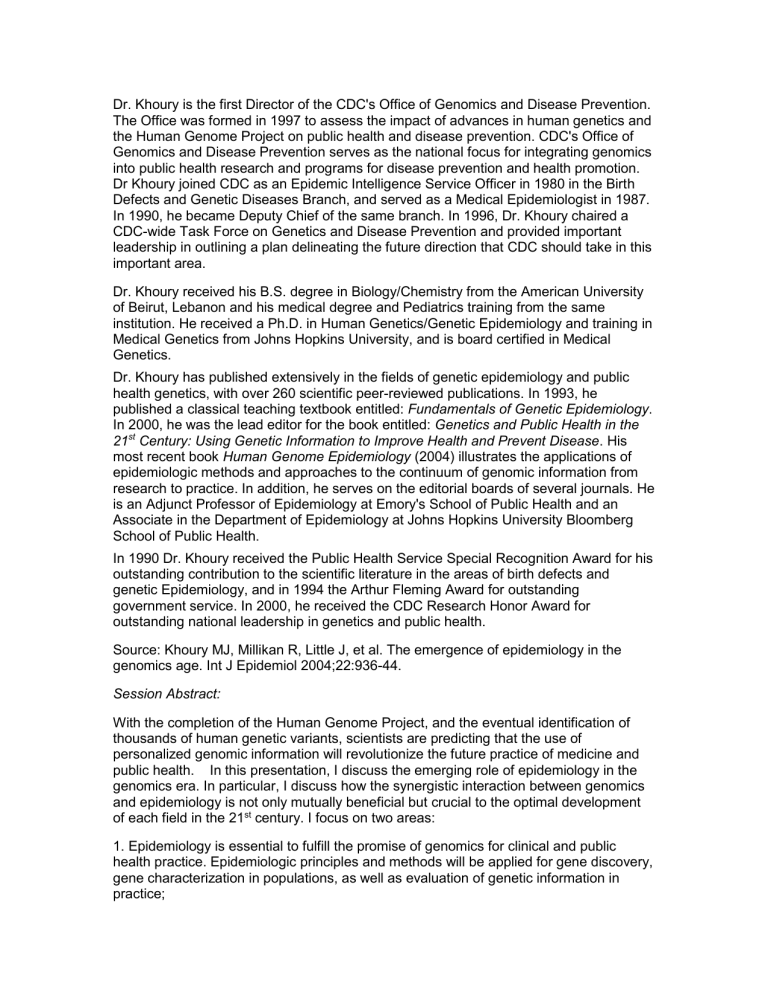
Dr. Khoury is the first Director of the CDC's Office of Genomics and Disease Prevention.
The Office was formed in 1997 to assess the impact of advances in human genetics and the Human Genome Project on public health and disease prevention. CDC's Office of
Genomics and Disease Prevention serves as the national focus for integrating genomics into public health research and programs for disease prevention and health promotion.
Dr Khoury joined CDC as an Epidemic Intelligence Service Officer in 1980 in the Birth
Defects and Genetic Diseases Branch, and served as a Medical Epidemiologist in 1987.
In 1990, he became Deputy Chief of the same branch. In 1996, Dr. Khoury chaired a
CDC-wide Task Force on Genetics and Disease Prevention and provided important leadership in outlining a plan delineating the future direction that CDC should take in this important area.
Dr. Khoury received his B.S. degree in Biology/Chemistry from the American University of Beirut, Lebanon and his medical degree and Pediatrics training from the same institution. He received a Ph.D. in Human Genetics/Genetic Epidemiology and training in
Medical Genetics from Johns Hopkins University, and is board certified in Medical
Genetics.
Dr. Khoury has published extensively in the fields of genetic epidemiology and public health genetics, with over 260 scientific peer-reviewed publications. In 1993, he published a classical teaching textbook entitled: Fundamentals of Genetic Epidemiology .
In 2000, he was the lead editor for the book entitled: Genetics and Public Health in the
21 st Century: Using Genetic Information to Improve Health and Prevent Disease . His most recent book Human Genome Epidemiology (2004) illustrates the applications of epidemiologic methods and approaches to the continuum of genomic information from research to practice. In addition, he serves on the editorial boards of several journals. He is an Adjunct Professor of Epidemiology at Emory's School of Public Health and an
Associate in the Department of Epidemiology at Johns Hopkins University Bloomberg
School of Public Health.
In 1990 Dr. Khoury received the Public Health Service Special Recognition Award for his outstanding contribution to the scientific literature in the areas of birth defects and genetic Epidemiology, and in 1994 the Arthur Fleming Award for outstanding government service. In 2000, he received the CDC Research Honor Award for outstanding national leadership in genetics and public health.
Source: Khoury MJ, Millikan R, Little J, et al. The emergence of epidemiology in the genomics age. Int J Epidemiol 2004;22:936-44.
Session Abstract:
With the completion of the Human Genome Project, and the eventual identification of thousands of human genetic variants, scientists are predicting that the use of personalized genomic information will revolutionize the future practice of medicine and public health. In this presentation, I discuss the emerging role of epidemiology in the genomics era. In particular, I discuss how the synergistic interaction between genomics and epidemiology is not only mutually beneficial but crucial to the optimal development of each field in the 21 st century. I focus on two areas:
1. Epidemiology is essential to fulfill the promise of genomics for clinical and public health practice. Epidemiologic principles and methods will be applied for gene discovery, gene characterization in populations, as well as evaluation of genetic information in practice;
2. Genomics will enhance the potential for epidemiology to contribute to multidisciplinary scientific research. Genomic tools will influence epidemiologic study design, analysis, and causal inference on “environmental” causes of disease.
The advent of the genomics era could lead to a “renaissance” of observational epidemiology, establishing its crucial role in “translating” the human genome sequence into understanding health and preventing disease in populations. Genomics has the potential to enrich epidemiologic methods along the continuum from study design and analysis to inference on “environmental” as well as “genetic” causes of human disease.
Because epidemiology and genomics exist in largely separate worlds where different languages are spoken, there is a growing need for multidisciplinary dialogue, training and collaboration
Contact Information:
Muin J. Khoury, MD, PhD
Director, Office of Genomics and Disease Prevention
Centers for Disease Control and Prevention
4770 Buford Highway, N.E., Mail Stop K-89
Atlanta, Georgia 30341
Tel: (770) 488-8510
Fax: (770) 488-8336
